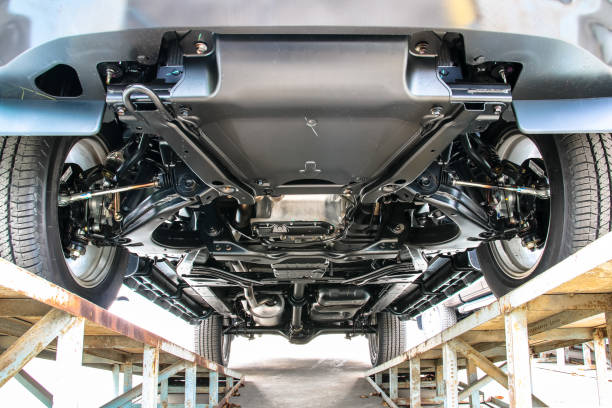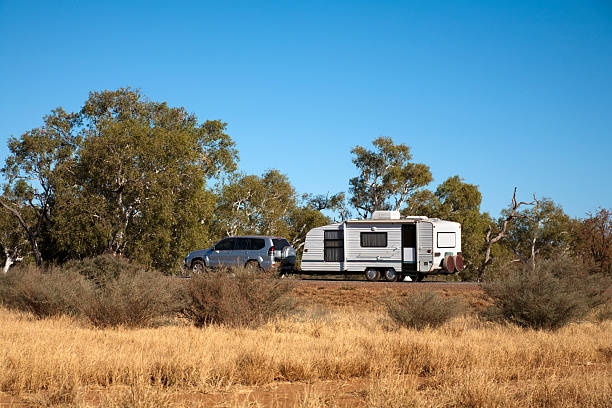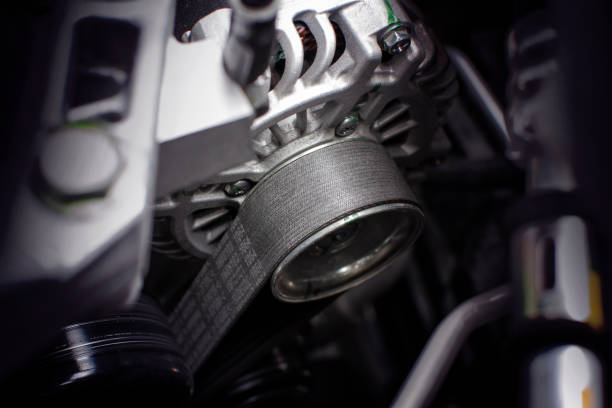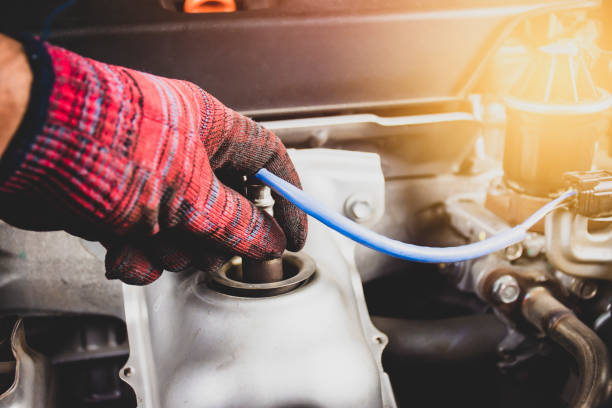Many debtors are not aware that they are facing car repossession as they drive around in their brand new car. Car repossession is becoming more common these days. Primarily, it is because a lot of younger people are naïve about how automobile finance works.
They do not understand that if they stop making payments, their car can be physically taken from them. On top of that, the creditor has the power to take away the vehicle without any warning. This is all triggered if the debtor fails to clear up the payment within a certain amount of time.
That was me in my early 20s. I had bought a newer car and had five years of payments to make. As a college student, I was working for low wages and lived primarily on student loans. I got behind on my car payments waiting for the next round of student loans to be made available to me.
When the loan company called to demand payment, I told them they would have to wait a few more weeks until my loans became available. They refused to wait and said I either made a payment that day or they were coming to take my car. Not knowing how this system worked, I told them to come get it as there was nothing else I could do but wait for my loans.
Little did I know the car would be sold at auction for a fraction of what I owed. Then the bank came after me for the remaining balance. I ended up owing over $2,500 on a car I no longer drove and there was nothing I could do about it.
So in this post, I will teach you all about car repossession and everything related to it that I have learned.
What triggers a car repossession?

Car repossession laws in America are slightly different from state to state. But in most cases, the creditor has the right to repossess your car in the event of a default, and they can do it anywhere, anytime. Mine was taken from the parking lot at my work… while I was working!
Failing to make a payment on time is the most common thing that triggers car repossessions. The creditors gain the legal right to take back the car once you sign the sales contract. And the worst part is that they can take your car away without warning you in advance or even without going to court.
The creditors also have the right to sell the sales contract to a third party, which is commonly known as the assignee. The assignee will have the power to take or seize the debtor’s car in the case of a missed payment, just like the original creditor.
Regardless of which state you are living in, it is always best to pay off the loan on time and as agreed. Doing this will not only save you a lot of money, but it will also keep you out of trouble, and give you peace of mind. The rights of the creditors or the financial institutions will end the moment you pay off the loan.
When will the creditors send a tow truck to seize your car?
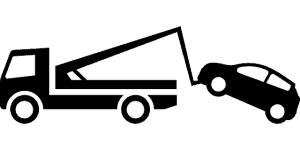
The creditor may start looking for your vehicle as soon as you default on the loan. For this reason, it is advised that you keep in touch with the creditor and always know the status of your loan. This is very easy to do nowadays with online banking.
If you know you are going to have problems making your payment on time, you should talk with the creditor before you miss your payment date. Explain your situation and give them reasons why you are unable to make the payments. If the creditor is agreeable, they can arrange for alternative payment or grant you extra time by altering the payment due date.
So, how does your loan or lease go into default? This may vary depending on several conditions. But the contract should have a detailed list of what triggers or constitutes a default. When it comes to car repossession, failing to make a timely payment is the most common reason that puts the loan into default.
You should also familiarize yourself with the Grace Period of your payment date. Some creditors allow for up to one week past the due date. But some do not allow any late days at all. If your payment date comes due on a Sunday and you wait until the next day when the bank opens to make a payment, it is considered late. There will most likely be late fees too. Know the rules of when to make your payment on time.
In the event of a default, how much power can a creditor exercise?
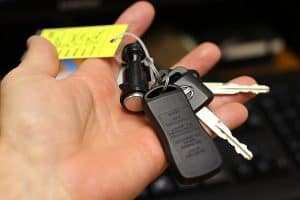
If you have failed to make your payments on time and cannot come to an agreement, the lender will most likely try to seize your car. They will do this by contacting a repossession service. But be aware that the creditors are bound by the law of the state. As stated earlier, repossession laws vary from state to state and there are certain things they can and cannot do during a repossession.
The lenders will be at fault if there is a “breach of peace.” This means that the use of force is prohibited. Your car cannot be taken away while it is parked in a closed garage and they cannot use physical force.
It is important to know that your creditors cannot force you physically or verbally during the repossession process. If they do use force in any way, you can use it in a court of law against them. However, they have the right to drive away or tow your car from the parking lot, driveway, or on the highway. It doesn’t matter if your car is parked on your property or not. They can take it away as long as it is parked in an open space.
If there is a breach of peace during the process of car repossession, the lender may be required to pay for any harm done to you. They will also have to pay for any damage done to your property during the repossession. You should seek counsel for a legal defense if there is a breach of peace.
What does repossession do to my credit score?
Repossession is definitely not good for your credit score. It will be listed on your credit report for up to seven years. Anytime you need to apply for something that relies on your credit score, the lender you are applying with will see the bad mark left by a repossession. There is nothing you can do to remove it from your credit report.
In most states, creditors are allowed to report the repossession immediately to the credit bureau. It will show up on your credit report within 30 days and decrease your credit score substantially. This is another reason why you are better off trying to work out a delayed payment arrangement if you are having problems.
Seven years is a long time to pay a penalty for missing a few car payments.
What happens to the car after it is seized or repossessed?

After the car has been repossessed, the lender can choose to either sell it or keep it. In some states, the creditor is required to inform the debtor which option they have chosen to pursue. This will be listed in the details of your sales contract. Usually, repossessed cars are sold at auctions, and the debtor has the right to know where the auction is going to take place.
This was not the case for my car. I had no idea that it would be sold at auction for pennies on the dollar. But now you know because I am sharing all this information with you.
Also, there is a chance you can get the car back after repossession from the lender. Make a call to the lender and ask if you can still make the missed payments. They may give you one more chance, but you will also have to pay the repossession fees at this point. This is still better than losing the car and ruining your credit score for seven years.
What can you do to avoid repossession?

There comes a time in everyone’s life when you fall behind payments, and things like car repossession become a possibility. Repossession is a lot of trouble, and it hurts your credit score badly. It is always best to avoid a repossession.
Here are some of the things you can do to stay away from a repossession.
- Talk to your lender, let them know what’ is causing you to fall behind before the time expires, and your loan goes into default. As discussed earlier, if you have a good relationship with the lender, they might give you a break.
- If all else fails, you can let the car go back to the lender but in a manner that doesn’t look as bad on your credit. This act is termed as ‘voluntary repossession, or voluntary surrender.’ It will still lower your credit score, but it does not look as bad as an involuntary repossession.
- Another way to avoid repossession is by selling your car. If the remaining loan balance is lower than the value of your car, sell it. You can pay off the loan and still have some cash in your pocket. Selling a car is a good way to avoid repossession from hitting your credit score.
- You can stay away from all these worries and headaches by using a bike or public transportation to get around town. By doing this, you can also be proud that you are contributing to the environment. Sometimes, cars just aren’t worth the hassle.
- Consider buying a used car for cash. New cars cost more and usually require a bank loan. There are lots of excellent used cars you can find, and they can be a lot cheaper than buying a new one. There can be no repossession if you don’t take out a loan.
Conclusion.
In the event of a car loan default, you might think you can hide your car in your garage. If your car is kept locked inside the garage, it is not considered illegal. True, the Repo Man cannot break open the lock and take away your car. But you are only delaying the inevitable. At some point you will be tempted to drive it somewhere and they will be watching you.
Do yourself a favor. First, know the details of your loan and when your payments are due. Understand when fees are applied and how to avoid them. Stay on top of your payments and keep track in a notebook when you have paid them. Always double check to make sure the bank got the payment you sent. Don’t just assume they got it.
Most of all, if you are going to be late do not be afraid to call the lender and let them know. Ask for an extension if you need one. It is in the lender’s best interest to collect your payments and avoid the hassle on their end of a repossession too.






